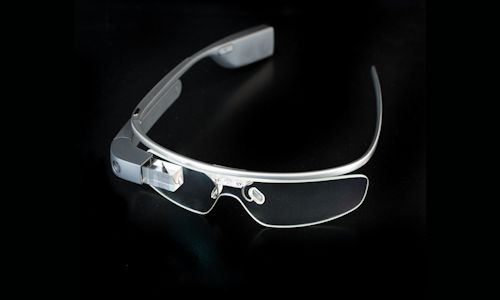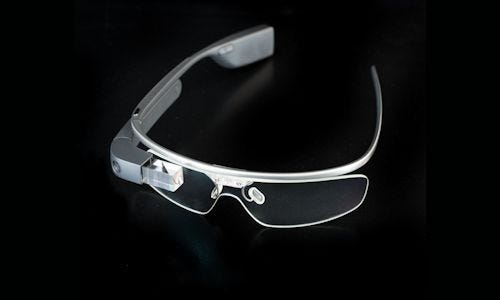
It hasn't been formally launched yet, but folks in the tech world already can't stop talking about it. Those who are using Google Glass pre-launch are referred to as Explorers – tech-savvy early adopters who were chosen to get an early look at this cutting edge technology through the Google Explorer program. As it turns out, farmers can make pretty good Explorers.
For those not familiar with this wearable technology, smart glasses are essentially a pair of glasses with a head-mounted display. They have all the capabilities and components of a smartphone, but the display is directly in front of the user's eyes. Glass links to your smartphone or tablet to access a cellular data signal.

Bruce Rasa, whose family farms 3,500 acres in western Missouri, was one of the few involved in agriculture selected out of about 8,000 to try out Google Glass. As CEO of TekWear, LLC of Buford, Georgia, Rasa, shared Google Glass demonstrations with over 600 people from 22 countries in 2013, including numerous farmers and ag business professionals.
On Thursday, he demonstrated some of the capabilities of this technology at The Big Data Conference at the American Royal in Kansas City, an eye-opener for a lot of people, including myself.
Agricultural potential
Smart glasses like Google Glass have two potential markets, Rasa says. Of course, there's the consumer side, but there's also the business side, including agriculture, construction, and manufacturing.
"Those are the kind of jobs that are typically very mobile. If they have continued access to a phone or tablet in a hands-free way, what I've heard from them is they're extremely interested in this concept," Rasa says. "In the consumer area, a lot of people may view it as a toy, and that's fine. But in the business world, specifically in agriculture, they're starting to see it as a tool that can evolve to be useful and practical."
~~~PAGE_BREAK_HERE~~~
Glass is operable using a touch pad, as well as hands-free by use of voice commands, providing numerous advantages, especially in specialized vertical markets like agriculture – an increasingly tech-savvy sector where smartphones and tablets are used on an everyday basis.
Potential uses in agriculture include crop scouting, technical support for precision agriculture, and monitoring animal health, in a safe, hands-free manner.
"The interest in Google Glass stems around capturing and sharing information on crops, machinery, or livestock, typically around health, maintenance, or a general understanding in those three areas and sharing through photos or text," Rasa says.
A step in the right direction
Rasa projects Glass to be officially launched in late 2014 or early 2015. This technology is still new, and when it is launched, Google Glass will be the "Model T" of smart glass technology – there are still some updates needed before it becomes widely-adopted in agriculture, he adds.
"It's got to be smaller and more affordable, and the technology will improve over the next 3 to 5 years," he says. "Improvements will include miniaturization of processors, lower battery consumption, smaller cameras, and smaller sensors. It's definitely a right step in the right direction."
Rasa notes smartphones weren't widely-used until the launch of the iPhone. Now, there are about one billion smartphones in the world.
"There were roughly ten or 15 years of experimentation where cell phone vendors tried to take a feature phone and give it more capabilities, but they had problems like being overly complex or low battery life. But they kept plugging away at it. Eventually the right features came together with the iPhone," he says, adding the same thing will likely happen with smart glasses in agriculture. "I'm convinced it's going to happen, but it's going to take some time."
For more information on TekWear, visit www.TekWearAg.com. For more information on Google Glass, visit www.google.com/glass/start.
About the Author(s)
You May Also Like






